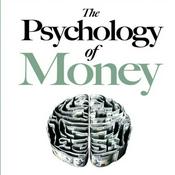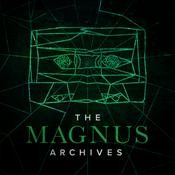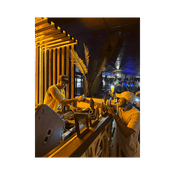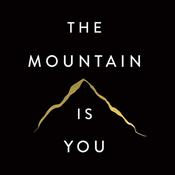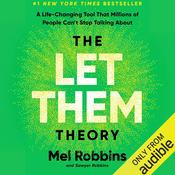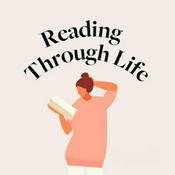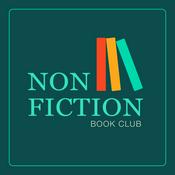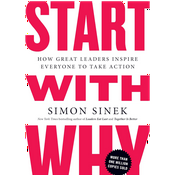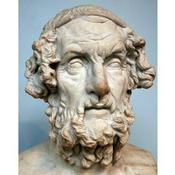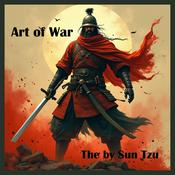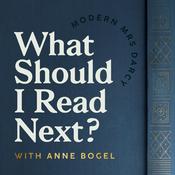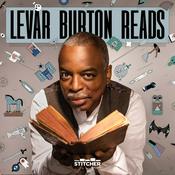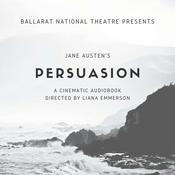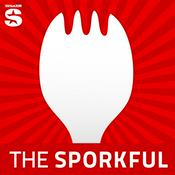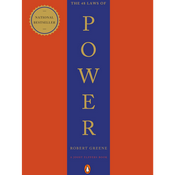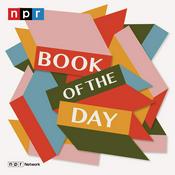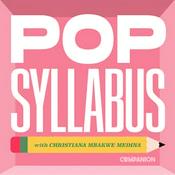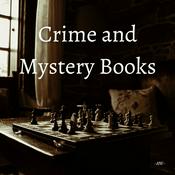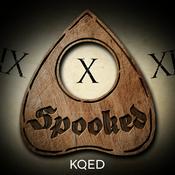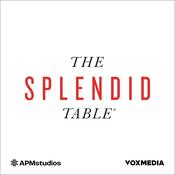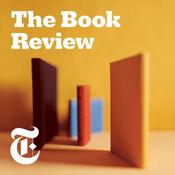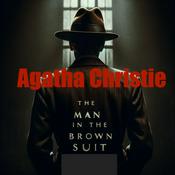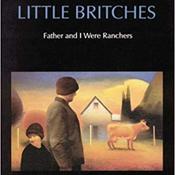472 episodes
The Science of Teaching: Addressing the Global Education Crisis | Dr Asyia Kazmi
2026/2/09 | 48 mins.We delve into the stark realities of learning inequality, the crucial role of the science of teaching, and the transformative power of education, even in the face of conflict. Dr. Asyia Kazmi, CEO of WISE (World Innovation Summit for Education), an organization that is part of the Qatar Foundation, helps us explore the challenges and solutions in global education. As a former math teacher, Dr. Kazmi offers specific, evidence-based strategies for improving learning outcomes — including the concept of structured pedagogy — and discusses the nuances of AI and education, urging caution and the need for region-specific, full-stack solutions. Dr. Kazmi emphasizes that improving learning (not just access to schooling) must be the primary goal for policy. She confronts the notion that poverty is an insurmountable barrier to educational success, asserting that educators have a deep responsibility to provide a pathway out of poverty for low-income students. The conversation also delves into the unique challenges of the Arab world, highlighting the 60% learning poverty rate in our region.
This episode was produced in collaboration with Qatar Foundation.
Find out more about WISE 👉 wise-qatar.org
0:00 Introduction
2:01 From Classroom Teacher to Education Policy
6:03 Challenging Assumptions: Pedagogy Is a Science
10:18 The Focus on Foundational Literacy and Numeracy
16:42 Teacher Responsibility to Overcome Poverty
21:49 Education Challenges in the Arab World
26:14 Resilience and Integrity: Lessons from Gaza
30:28 The Perils and Promise of AI in Education
39:35 Leveraging AI to Support Teachers
44:44 The Secrets of Successful Education Systems
Dr. Asyia Kazmi brings over 30 years of experience in education across government, philanthropy, and international development, with a distinguished track record of improving learning outcomes for underserved communities. Before joining Qatar Foundation, she served as the Global Education Policy Lead at the Bill & Melinda Gates Foundation, where she helped create a global edtech and AI portfolio that positively impacted 2.5 million children. She began her career as a mathematics teacher and teacher coach before moving into leadership roles in the public and private sectors. At PwC, she led the UK government’s $1 billion Girls’ Education Challenge, supporting 1.5 million girls across 17 countries. She has also served in senior roles across three UK Government departments, including as Senior Education Adviser at DFID, Project Director at the Department for Education, and Her Majesty’s Senior Inspector at Ofsted. She holds a Master’s in Applied Mathematics from Imperial College London, a Doctorate in Education from University College London, and two PGCEs in mathematics teaching and leadership development. She was awarded an OBE in the Queen’s 2022 New Year’s Honours List for her contributions to girls’ education.
Connect with Asyia Kazmi 👉
https://instagram.com/wiseqatar
Hosted by:
Mikey Muhanna 👉 https://www.instagram.com/mikey_mu/?hl=en-gb
FOLLOW & RATE THE AFIKRA PODCAST:
» Apple Podcasts: https://podcasts.apple.com/lb/podcast/the-afikra-podcast/id1529437743
» Spotify: https://open.spotify.com/show/5nafoF1Zs7F48mGZjlhrze
» Anghami: https://play.anghami.com/podcast/1014643869
THIS SERIES IS PART OF THE AFIKRA PODCAST NETWORK
Explore all episodes in this series: https://youtube.com/playlist?list=PLfYG40bwRKl5xaTkBDrUKLCulvoCE8ubX&feature=shared
ABOUT AFIKRA
afikra | عفكرة is a movement to convert passive interest in the Arab world to active intellectual curiosity. We aim to collectively reframe the dominant narrative of the region by exploring the histories and cultures of the region – past, present and future – through conversations driven by curiosity.
📍 Local events in 40+ locations worldwide http://afikra.com/chapters
🎧 New podcasts + videos weekly http://afikra.com/podcasts
⚡ Become a member: https://www.afikra.com/membership
🔗 Instagram: https://www.instagram.com/afikra_
🔗 Facebook: https://www.facebook.com/afikra.official
🔗 Twitter: https://twitter.com/afikra
Hosted by Simplecast, an AdsWizz company. See pcm.adswizz.com for information about our collection and use of personal data for advertising.Innovation Rooted in Culture: On Deep Tech, Brain Drain & Impact | Rama Chakaki
2026/2/04 | 57 mins.The president of the Qatar Science and Technology Park (QSTP), discusses her unique vision for innovation in the Arab world, emphasizing the crucial need to tie technological advancement to our roots, culture, heritage, and fundamental needs. Rama Chakaki shares insights from her career, which is defined by bridging the gap between impact and financial return, and explains QSTP's role as a platform for global innovation, nurturing deep-tech companies in sectors like AI, robotics, and biotech, with a focus on impact. The discussion delves into the pervasive "brain drain" phenomenon, with Chakaki observing a "reverse brain drain" as Arabs return to Doha and the region due to safety, resource availability, and a culture of belonging. She champions a bottom-up approach to innovation and addresses common misconceptions about Arab women in tech, highlighting their high representation in tech degrees and leadership roles. Finally, Chakaki challenges the Silicon Valley "unicorn" model, advocating for a community-built "elephant" model that prioritizes the double or triple bottom line—caring for people, the environment, and financial returns.
Explore Qatar Science and Technology Park 👉 https://qstp.qa/
This episode was produced in collaboration with Qatar Foundation.
01:33 Introduction
02:55 Defining Deep Tech
04:08 An Innovative Vision for the Arab Region
07:38 The Communal Education Framework
10:59 The State of Innovation: Green, Yellow, and Red Lights
13:42 Blending Impact and Financial Return
18:57 The Global Phenomenon of Brain Drain
26:43 QSTP's Global Mandate
28:37 Examples of Culturally Rooted Innovation
36:18 The "Elephant" Model and Triple Bottom Line
44:00 The Risk of Free Products and Data
48:15 Misconceptions About Arab Women In Tech
51:26 Advice To Her Younger Self
55:16 Suggested Reading
Syrian-American Impact Tech Entrepreneur, Investor and philanthropist, Rama Chakaki is the president of the Qatar Science and Technology Park (QSTP). Prior to her role at QSTP, she was a partner at Transform VC, a Silicon Valley firm enabling 1000 tech founders to impact a billion and make a billion by investing in deep tech with climate and social impact. Rama was instrumental in building the social entrepreneurship ecosystem in the Middle East. In addition to her corporate roles, Rama runs an edTech nonprofit (VIP.fund) supporting youth impacted by conflict. Rama has been featured in Forbes, Bloomberg, the Monitor, Arab Women Rising, a Wharton School of Business Publication and The power of presence, a book by Joy Moore.
Connect with Rama Chakaki 👉
https://instagram.com/rchakaki
Hosted by:
Mikey Muhanna 👉 https://www.instagram.com/mikey_mu/?hl=en-gb
FOLLOW & RATE THE AFIKRA PODCAST:
» Apple Podcasts: https://podcasts.apple.com/lb/podcast/the-afikra-podcast/id1529437743
» Spotify: https://open.spotify.com/show/5nafoF1Zs7F48mGZjlhrze
» Anghami: https://play.anghami.com/podcast/1014643869
THIS SERIES IS PART OF THE AFIKRA PODCAST NETWORK
Explore all episodes in this series: https://youtube.com/playlist?list=PLfYG40bwRKl5xaTkBDrUKLCulvoCE8ubX&feature=shared
ABOUT AFIKRA
afikra | عفكرة is a movement to convert passive interest in the Arab world to active intellectual curiosity. We aim to collectively reframe the dominant narrative of the region by exploring the histories and cultures of the region – past, present and future – through conversations driven by curiosity.
📍 Local events in 40+ locations worldwide http://afikra.com/chapters
🎧 New podcasts + videos weekly http://afikra.com/podcasts
⚡ Become a member: https://www.afikra.com/membership
🔗 Instagram: https://www.instagram.com/afikra_
🔗 Facebook: https://www.facebook.com/afikra.official
🔗 Twitter: https://twitter.com/afikra
Hosted by Simplecast, an AdsWizz company. See pcm.adswizz.com for information about our collection and use of personal data for advertising.Founder of Mille World Sofia Guellaty | Fashion, Soft Power & the New Arab Identity
2026/1/19 | 1h 5 mins.The unifying youth culture across the Arab region is characterized by a proud new Arab identity and the changing standards of beauty with the rise of "Arab beauty" (A beauty), which celebrates Arab features and aesthetics. The founder of Mille World and Mille Creative, Sofia Guellaty, talks about her journey launching the first Arab youth platform in the Arab world, the role of media professionals as "editors of conversations," and the emergence of a new, proud Arab identity among both Gen Z and millennials. She discusses how she uses fashion and pop culture as a tool for "soft power" to talk about liberation, representation, and diversity, moving away from superficial content. She reflects on her early career, her shift from being fascinated by the West to "unbashedly proud to be Arab," and the challenges faced by Arab talent, including visa issues and the lack of an Arab-centric market. The conversation also delves into how her platform, Mille World, aims to address the lack of authentic Arab youth representation by giving a voice to young creatives who want to define their own stories, not be perceived through a "western gaze".
Explore Mille World 👉 https://www.instagram.com/mille_world/
0:00 Introduction
2:06 The First Arab Youth Platform
3:51 Media Consumption and Identity & Obsession with the West
7:20 Fashion’s Role: Beyond Clothes to Communication Techniques
10:47 Becoming Editors of Conversations
18:47 Representation in Modeling: the Arab Face
20:07 Barriers for Arab Talent: Visa Issues and Market Size
24:46 Structurally Flawed Media and the Need for Critique
29:27 The Complexities of Arab Identity and Community
34:04 The Unifying New Arab Identity and Its Pillars
36:16 Changing Standards: The Rise of Arab Beauty
40:56 Cultural Blind Spots and Local Talent in the Region
45:00 Homegrown Talent Shaping the New Narrative
49:14 Fixing the Creative Industries with Unlimited Capital
52:57 Stories of Pride: Being the Torchbearer of Anti-Colonial Sentiment
Sofia Guellaty is the founder and creative director of Mille World, a digital magazine that chronicles Arab youth culture and style currents. She has grown the Dubai-based business into a cultural platform covering art, fashion, beauty, music and travel scenes across the Middle East and North Africa, featuring bold storytelling and sharp commentary from underrepresented voices in both Arabic and English. Under Guellaty’s leadership, Mille has become a vital alternative voice in the Arabic media landscape and a refreshing read for Gen Z and Millennials across the region. Blending her sleek editorial vision with fearless cultural commentary and an unconventional perspective, Mille explores everything from Libyan streetwear to Palestinian DJs and Lebanese jewellery designers. Beyond her editorial work, Guellaty serves as a board member of Fashion Trust Arabia and operates Mille Creative, a Dubai- and Riyadh-based marketing and creative agency producing campaigns for global brands. She launched Mille in 2017 after serving as editor of Condé Nast’s first Middle East venture, Style.com/Arabia, while contributing to Vanity Fair France. Born and raised in Tunisia, Guellaty began her media career in Paris, freelancing for Elle France and later publishing her novel ‘Le Sablier’.
Connect with Sofia Guellaty 👉
https://instagram.com/sofiaguellaty
Hosted by:
Mikey Muhanna 👉 https://www.instagram.com/mikey_mu/?hl=en-gb
FOLLOW & RATE THE AFIKRA PODCAST:
» Apple Podcasts: https://podcasts.apple.com/lb/podcast/the-afikra-podcast/id1529437743
» Spotify: https://open.spotify.com/show/5nafoF1Zs7F48mGZjlhrze
» Anghami: https://play.anghami.com/podcast/1014643869
THIS SERIES IS PART OF THE AFIKRA PODCAST NETWORK
Explore all episodes in this series: https://youtube.com/playlist?list=PLfYG40bwRKl5xaTkBDrUKLCulvoCE8ubX&feature=shared
ABOUT AFIKRA
afikra | عفكرة is a movement to convert passive interest in the Arab world to active intellectual curiosity. We aim to collectively reframe the dominant narrative of the region by exploring the histories and cultures of the region – past, present and future – through conversations driven by curiosity.
📍 Local events in 40+ locations worldwide http://afikra.com/chapters
🎧 New podcasts + videos weekly http://afikra.com/podcasts
⚡ Become a member: https://www.afikra.com/membership
🔗 Instagram: https://www.instagram.com/afikra_
🔗 Facebook: https://www.facebook.com/afikra.official
🔗 Twitter: https://twitter.com/afikra
Hosted by Simplecast, an AdsWizz company. See pcm.adswizz.com for information about our collection and use of personal data for advertising.- The conversation covers the historical emergence of Algeria as a political and territorial unit, starting in the Ottoman period in the 16th century. Key pivotal moments in Algerian history are highlighted, including French colonialism beginning in 1830, which led to a settler colonial project, the rise of the modern mass nationalist movement in the interwar period, the War of National Liberation (1954–1962), and the decade of violence in the 1990s. The latter half of the conversation focuses on the "Worlds of Islam," emphasizing a polycentric history with no single center. A historian, professor at the University of Oxford, and author of books "A History of Algeria" and "The Worlds of Islam: A Global History", James McDougall details the diverse "technologies" of Islam's spread, including its compelling initial mission, the appeal of social mobility for non-Arabs, trade networks, and the influence of Sufism. He also discusses the historical roots of Islamophobia, which is traced to the 19th-century colonial moment. He discusses why he was drawn to studying Algeria, a country he notes is often ignored in Middle East studies and is known as "the land of a million martyrs" for its iconic history of resistance to colonialism.
0:00 Introduction
2:08 Intellectual Curiosity and Addressing Poor Understanding of the Region
7:37 When Did Algeria Begin to Exist? Debunking the Colonial Narrative
12:38 Pivotal Moments in Algerian History
13:48 The Ottoman Period (16th–19th Century) and Connection to the Levant
16:29 Settler Colonialism Under the French (1830 Onwards)
19:46 The War of National Liberation (1954–1962)
20:41 The Violence of the 1990s
21:35 Is the War of Independence Connected to the 1990s Civil Strife?
23:34 The Legacy of French Colonial Misunderstanding and Racism
31:27 Algeria as an Anti-Colonial Symbol Across the Arab World
32:18 Leadership of the Algerian Revolution
38:37 The Worlds of Islam: A Polycentric Global History
46:05 Technologies of Islam's Spread
49:18 Muslims as a Minority in the Middle East After the Early Conquests
53:15 Why Islam Did Not Spread Everywhere Earlier
55:20 The Historical Development of Islamophobia
Readings on Global history and Islamic history:
Josephine Quinn, How the World Made the West: A 4000 Year History (2024)
Cemil Aydin, The Idea of the Muslim World: A Global Intellectual History (2017)
Readings on Algeria:
Natalya Vince, The Algerian War, the Algerian Revolution (2020)
Malika Rahal, Algérie 1962, une histoire populaire (2022)
Jeffrey James Byrne, Mecca of Revolution: Algeria, Decolonization, and the Third World Order (2016)
Thomas Serres, The Suspended Disaster: Governing by Crisis in Bouteflika’s Algeria (2023)
Muriam Haleh Davis, Markets of Civilization: Islam and Racial Capitalism in Algeria (2022)
Christopher Silver, Recording History: Jews, Muslims and Music across 20th century North Africa (2022)
Sara Rahnema, The Future is Feminist: Women and Social Change in Interwar Algeria (2023)
Arthur Asseraf, Electric News in Colonial Algeria (2019)
James Robert McDougall is a British historian and Professor of Modern and Contemporary History at the University of Oxford and Laithwaite Fellow in History at Trinity College, Oxford. His research mainly addresses the modern and contemporary Mediterranean; Middle Eastern, African and Islamic history, especially Algeria, Tunisia, and Morocco, but also the history of European imperialism in the Arab world, modern Arab intellectual and political history, and the global history of Islam since c.1700; the French colonial empire in Africa; the Sahara; nationalism and revolutionary movements in Asia and Africa; comparative imperial history; historiography and critical theory.
Hosted by:
Mikey Muhanna 👉 https://www.instagram.com/mikey_mu/?hl=en-gb
FOLLOW & RATE THE AFIKRA PODCAST:
» Apple Podcasts: https://podcasts.apple.com/lb/podcast/the-afikra-podcast/id1529437743
» Spotify: https://open.spotify.com/show/5nafoF1Zs7F48mGZjlhrze
» Anghami: https://play.anghami.com/podcast/1014643869
THIS SERIES IS PART OF THE AFIKRA PODCAST NETWORK
Explore all episodes in this series: https://youtube.com/playlist?list=PLfYG40bwRKl5xaTkBDrUKLCulvoCE8ubX&feature=shared
ABOUT AFIKRA
afikra | عفكرة is a movement to convert passive interest in the Arab world to active intellectual curiosity. We aim to collectively reframe the dominant narrative of the region by exploring the histories and cultures of the region – past, present and future – through conversations driven by curiosity.
📍 Local events in 40+ locations worldwide http://afikra.com/chapters
🎧 New podcasts + videos weekly http://afikra.com/podcasts
⚡ Become a member: https://www.afikra.com/membership
🔗 Instagram: https://www.instagram.com/afikra_
🔗 Facebook: https://www.facebook.com/afikra.official
🔗 Twitter: https://twitter.com/afikra
Hosted by Simplecast, an AdsWizz company. See pcm.adswizz.com for information about our collection and use of personal data for advertising. - Discover the interconnectedness of peddling and factory work, the surprising origins of the Aloha shirt, and the key role Syrian workers played in major labor actions like the 1912 Bread and Roses strike in Lawrence, Massachusetts. Associate Professor of History at the University of California and author of "Unmentionables: Textiles, Garment Work, and the Syrian American Working Class" Dr. Stacy D. Fahrenthold discusses her work which offers a class-conscious history of the Syrian-American diaspora, a community of about half a million people in the 1910s, 1920s and 1930s. While the "peddler" is often the central figure and icon of this diaspora's economic history for over a century, Fahrenthold shifts the focus to the new immigrants who came to the U.S. and found work in the textile industries. The conversation explores the hidden role of Syrian-American garment workers, particularly young women, who produced goods like "kimonos", undergarments, stockings, and household textiles.
0:00 Introducing Unmentionables & Shifting the Icon from Peddler to Laborer
0:40 Lawrence, Massachusetts: The Second Largest Arab-American Community
1:48 Who Was The Syrian American Working Class?
2:41 The Gap in Arab-American Diaspora History
3:14 Textiles and Garment Work
4:50 The Peddler: Icon vs Reality
7:12 Labor Experience In The U.S. vs Greater Syria
8:50 Skilled Silk Weavers and First-Time Proletarians
10:14 Syrian Workers and Global Labor Movements
11:27 The Bread and Roses Strike of 1912
15:09 Dynamite, Arrests and Militarization of the Syrian Neighborhood
19:16 Scale of Syrian Immigration Compared to Other Groups
22:14 The Majority of Textile Workers Were Women
24:43 The Connection to the Silk Industry in Mount Lebanon
27:28 A Look Inside a Syrian-American Garment Factory
29:04 The Kimono: Branding and Orientalism
31:50 The Effacement of Origins in the Marketplace
35:36 Economic and Social Mobility For Syrian-American Families
39:03 The Legacy of Syrian-American Textile Companies
40:01 The Lebanese Origins of The Aloha Shirt
43:14 Marghab Linen and Racial Stereotyping
44:22 Geographic Dispersion of Syrian Communities
47:09 Illicit Activity and Contraband in the Diaspora
49:22 Recommended Readings In Arab-American History
Stacy Fahrenthold is a historian of the modern Middle East specializing in labor migration; displacement/refugees; border studies; and diasporas within and from the region. Her new book "Unmentionables: Textiles, Garment Work, and the Syrian American Working Class" examines how Syrian, Lebanese, and Palestinian immigrant workers navigated processes of racialization, immigration restriction, and labor contestation in the textile industries of the Atlantic world. It recently received the Middle East Studies Association's 2025 Nikki Keddie Award for "outstanding scholarly work in religion, revolution, and/or society." Her award-winning first book, "Between the Ottomans and the Entente: The First World War in the Syrian and Lebanese Diaspora" examines the politics of Syrian and Lebanese migration to the Americas during the First World War, the fall of the Ottoman Empire, and the rise of European Mandates in the Middle East. Fahrenthold is Associate Editor of Mashriq & Mahjar: Journal of Middle Eastern and North African Migration Studies.
Connect with Stacy D. Fahrenthold 👉
https://instagram.com/sdfahrenthold
Hosted by:
Mikey Muhanna 👉 https://www.instagram.com/mikey_mu/?hl=en-gb
FOLLOW & RATE THE AFIKRA PODCAST:
» Apple Podcasts: https://podcasts.apple.com/lb/podcast/the-afikra-podcast/id1529437743
» Spotify: https://open.spotify.com/show/5nafoF1Zs7F48mGZjlhrze
» Anghami: https://play.anghami.com/podcast/1014643869
THIS SERIES IS PART OF THE AFIKRA PODCAST NETWORK
Explore all episodes in this series: https://youtube.com/playlist?list=PLfYG40bwRKl5xaTkBDrUKLCulvoCE8ubX&feature=shared
ABOUT AFIKRA
afikra | عفكرة is a movement to convert passive interest in the Arab world to active intellectual curiosity. We aim to collectively reframe the dominant narrative of the region by exploring the histories and cultures of the region – past, present and future – through conversations driven by curiosity.
📍 Local events in 40+ locations worldwide http://afikra.com/chapters
🎧 New podcasts + videos weekly http://afikra.com/podcasts
⚡ Become a member: https://www.afikra.com/membership
🔗 Instagram: https://www.instagram.com/afikra_
🔗 Facebook: https://www.facebook.com/afikra.official
🔗 Twitter: https://twitter.com/afikra
Hosted by Simplecast, an AdsWizz company. See pcm.adswizz.com for information about our collection and use of personal data for advertising.
More Arts podcasts
Trending Arts podcasts
About The afikra Podcast
The afikra Podcast is our flagship series featuring experts from academia, art, media, urban planning and beyond, who are helping document and shape the histories and cultures of the Arab world through their work. Our hope is that by having the guest share their expertise and story, the community walks away with a newfound curiosity, and recommendations about new nerdy rabbit holes to dive into head first.
Podcast websiteListen to The afikra Podcast, Artwork Sounds and many other podcasts from around the world with the radio.net app

Get the free radio.net app
- Stations and podcasts to bookmark
- Stream via Wi-Fi or Bluetooth
- Supports Carplay & Android Auto
- Many other app features
Get the free radio.net app
- Stations and podcasts to bookmark
- Stream via Wi-Fi or Bluetooth
- Supports Carplay & Android Auto
- Many other app features


The afikra Podcast
Scan code,
download the app,
start listening.
download the app,
start listening.


